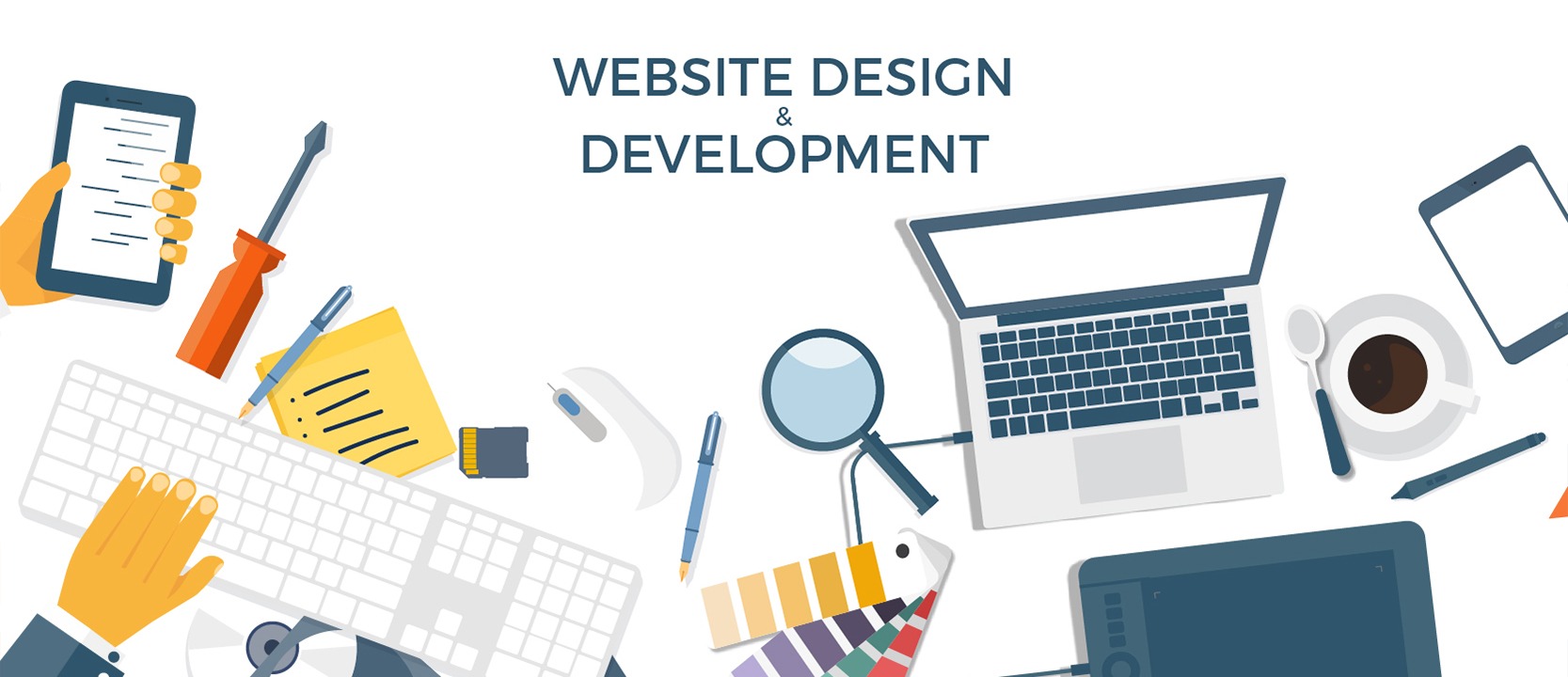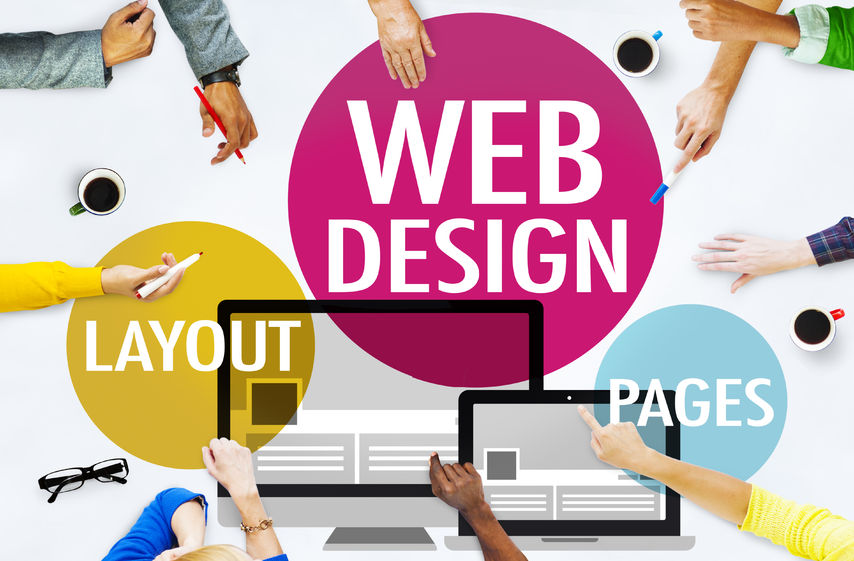What are the benefits of hiring a professional web design company?
Hiring a professional web design company can bring numerous benefits to your business. A website is often the first point of contact between you and potential customers, making it crucial to have an impressive online presence. Let’s explore why partnering with a reputable web design and development agency can greatly enhance your digital success.
Firstly, professional website design ensures that your online platform is aesthetically appealing, user-friendly, and visually impactful. A skilled team of designers will work closely with you to create a custom website that aligns with your brand identity and effectively captures the attention of visitors. This cohesive branding fosters trust and credibility among users, ultimately increasing conversion rates.
Moreover, a professional web design company understands the importance of responsive design. With the ever-growing usage of mobile devices, having a website that adapts to different screen sizes is paramount. Responsive web design not only provides an optimal browsing experience for mobile users but also benefits search engine optimization (SEO), improving your visibility in search results.
Beyond aesthetics, hiring experts in website development opens up opportunities for additional functionalities tailored to meet your specific business needs. Whether it’s integrating e-commerce capabilities for online sales or developing custom features unique to your industry, a professional team has the technical expertise to bring these ideas to life.
Additionally, opting for a professional web design company can save you time and money in the long run. Skilled professionals possess extensive knowledge in cutting-edge technologies and industry best practices. Their ability to efficiently navigate through the complexities of web development ensures a streamlined process with reduced chances of errors or setbacks.
Lastly, affordability should not be overlooked when considering outsourcing website design services. Contrary to popular belief, partnering with a web design company does not always translate into exorbitant costs. Many agencies offer flexible pricing options catering to various budgets without compromising on quality.
In conclusion, investing in professional web design delivers numerous advantages that directly impact your online success — from creating visually appealing websites tailored to your brand, to ensuring responsiveness and functionality across all devices, to saving time and money with expert guidance. By collaborating with a reputable web design and development agency, you are equipped with the tools necessary to stand out in today’s competitive digital landscape.
In today’s digital world, having a strong online presence is crucial for the success of any business. This is where hiring a professional web design company can make all the difference. With their expertise and experience, these companies offer numerous benefits that can significantly enhance your online presence and boost your business.
One of the key advantages of hiring a website design company is their ability to create a professional and visually appealing website. A well-designed website not only captures the attention of visitors but also establishes credibility and trust with potential customers. These companies have the knowledge and skills to create custom designs that align with your brand identity while ensuring a user-friendly interface and seamless navigation.
Moreover, professional web design companies specialize in responsive web design, which means your website will adapt effortlessly to different screen sizes and devices. With more people accessing websites through their mobile devices, having a responsive website is crucial for providing an optimal user experience across all platforms.
Another benefit is the integration of e-commerce functionality into your website. If you’re looking to sell products or services online, hiring an experienced web development agency ensures that your e-commerce platform is secure, easy to navigate, and capable of handling transactions smoothly.
Furthermore, professional web design companies also offer cost-effective solutions. While it may seem tempting to use DIY website builders or opt for cheaper alternatives, they often lack customization options and fail to provide the level of sophistication needed for a competitive edge. Investing in professional website design ensures long-term success by offering scalability and flexibility as your business grows.
Last but not least, many web design companies also offer mobile app development services. With smartphone usage on the rise, having a mobile app can give you an edge over competitors by providing additional value to your customers through enhanced accessibility and personalized experiences.
In conclusion, hiring a professional web design company offers numerous advantages such as creating visually appealing websites tailored to your brand image, ensuring responsiveness across various devices, integrating e-commerce functionality seamlessly, providing affordable solutions, and even offering mobile app development services. By entrusting your web design and development needs to experts, you can establish a strong online presence and drive business growth in this digital era.
What does a website design and development company do?
A website design and development company specializes in creating and maintaining websites for individuals, businesses, organizations, and various clients. Their primary objective is to design, develop, and manage websites that effectively meet their clients’ goals, whether it’s to establish an online presence, provide information, facilitate e-commerce, or offer other web-based services.
Website Design:
User Interface (UI) Design: They create visually appealing and user-friendly interfaces, ensuring a positive user experience.
Responsive Design: They design websites that work seamlessly on various devices and screen sizes, including desktops, tablets, and mobile phones.
Branding: They incorporate branding elements such as logos, color schemes, and fonts to maintain brand consistency.
Website Development:
Front-End Development: This involves coding the visual aspects of the website using technologies like HTML, CSS, and JavaScript to make the website interactive and engaging for users.
Back-End Development: They create the server-side functionality of the website, often using programming languages like PHP, Python, Ruby, or Node.js, and databases to store and manage data.
Content Management Systems (CMS): They might integrate or develop custom CMS solutions like WordPress, Drupal, or Joomla to enable clients to easily manage and update their website’s content.
E-Commerce Development:
They build online stores with secure payment gateways and product management systems, often utilizing platforms like WooCommerce, Shopify, or Magento.
- Search Engine Optimization (SEO):They optimize websites for search engines to improve visibility in search results, which includes optimizing content, meta tags, and other on-page elements.
- Performance Optimization: They work on improving website speed, performance, and loading times, which not only enhances user experience but can also positively impact SEO.
- Security: Ensuring websites are secure from potential threats, including implementing security protocols, regular updates, and monitoring for vulnerabilities.
- Content Creation and Integration: They might assist in creating or integrating content, which can include text, images, videos, and other media.
- Maintenance and Updates: Ongoing support to keep websites up-to-date, secure, and functional, including software updates, bug fixes, and content updates.
- Hosting and Domain Management: Many web development companies offer hosting and domain registration services, ensuring websites are accessible on the internet.
- Custom Web Applications: They design and develop custom web-based applications or software to meet unique business needs, which could include CRM systems, inventory management, or booking systems.
- Analytics and Reporting: Setting up tools and analytics to track website performance and user behavior, which helps in making data-driven decisions for improvements.
- Testing and Quality Assurance: Rigorous testing to identify and fix bugs, glitches, or other issues before a website goes live.
- User Training and Support: Providing training and support to clients for managing and updating their websites.
- Social Media Integration: Integrating social media elements, such as sharing buttons and feeds, into websites to enhance online presence and engagement.
In essence, a website design and development company combines creative and technical expertise to create and maintain websites that align with their clients’ objectives, ensuring that the websites are not only aesthetically pleasing but also functional, secure, and optimized for search engines and user experience.
How long does it take to develop a custom website?
The time it takes to develop a custom website can vary significantly depending on several factors, including the complexity of the project, the size and experience of the development team, the client’s requirements, and the functionality and features needed.
Here are some general guidelines for different types of websites:
Simple Brochure Website: These are basic websites with a few pages of static content, minimal interactivity, and no complex features.
Development Time: 2 to 6 weeks.
Small Business Website: These websites may have a few interactive elements, such as contact forms or image galleries, and could include a content management system (CMS).
Development Time: 6 to 12 weeks.
E-Commerce Website: Online stores with product catalogs, shopping carts, payment gateways, and user accounts. The timeline can vary significantly depending on the number of products and the complexity of the e-commerce system.
Development Time: 2 to 6 months.
Custom Web Applications: Complex web applications, such as customer relationship management (CRM) systems, project management tools, or online booking platforms, often require a longer development cycle due to their complexity.
Development Time: 6 months to over a year, depending on the scope and features.
Large Enterprise Websites: Corporate websites or portals for large organizations may have intricate integrations, user roles and permissions, and a high degree of customization.
Development Time: 6 months to 2 years, depending on the scale and complexity.
It’s important to note that these timeframes are approximate, and actual development times can vary.
Other factors that can influence the timeline include.
Client Feedback and Communication: The speed at which the client provides feedback and approvals can significantly impact the project timeline.
Scope Changes: If the project scope changes during development, it can lead to delays.
Testing and Quality Assurance: Rigorous testing and bug fixing can add to the development timeline.
Team Size and Experience: A larger and more experienced development team may complete the project more quickly.
Third-party Integrations: Integrating with external services or APIs can introduce dependencies that affect development time.
Content Preparation: If the client is responsible for providing content, delays in content preparation can extend the project timeline.
Regulatory and Compliance Requirements: Websites in industries with strict regulations may require additional time for compliance checks and approvals.
To get a more accurate estimate for your specific project, it’s best to consult with a web development company or a web developer who can assess your requirements and provide a tailored timeline based on the project’s unique characteristics. Additionally, project management techniques, such as Agile or Scrum, can help in efficiently managing and tracking the progress of web development projects.
Can a web design company help with search engine optimization (SEO)?
Yes, a web design company can indeed help with search engine optimization (SEO). In fact, many web design companies offer integrated web design and SEO services. Here’s how a web design company can assist with SEO:
SEO-Friendly Web Design: A professional web design company can create a website that is built with SEO in mind from the ground up. This includes optimizing site structure, navigation, and page layouts to enhance search engine visibility. A well-structured website with clean code is more likely to rank well on search engines.
Responsive Design: Web design companies can ensure that your website is responsive and mobile-friendly, which is a significant ranking factor for search engines. Websites that adapt well to various devices and screen sizes perform better in search results.
Page Speed Optimization: Slow-loading websites can negatively impact SEO rankings. Web designers can implement best practices to optimize page loading speed, which is essential for both user experience and SEO.
Content Placement: Web design companies can work with content creators to ensure that content is organized and displayed in a way that is easy for users and search engines to understand. Proper use of headings, meta tags, and on-page content can contribute to SEO success.
Image Optimization: Images can be optimized for faster loading times and better SEO through proper file compression, alt tags, and image titles.
Technical SEO:
URL Structure: Setting up clean and SEO-friendly URL structures.
Canonicalization: Preventing duplicate content issues with canonical tags.
Schema Markup: Adding structured data to help search engines understand the content better.
SEO Plugins and CMS Integration: If your website is built on a content management system (CMS) like WordPress, the web design company can integrate SEO plugins (e.g., Yoast SEO) to streamline on-page SEO optimization.
User Experience (UX): A well-designed website that provides an excellent user experience can lead to lower bounce rates and longer dwell times, which are factors that search engines consider when ranking websites.
Ongoing SEO Services: Many web design companies offer ongoing SEO services, such as keyword research, on-page optimization, content creation, and backlink strategies, to help improve your website’s rankings over time.
Analytics and Reporting: Implementing tools like Google Analytics and Google Search Console to monitor and analyze website performance and user behavior. Web design companies can provide reports and insights to help clients make data-driven decisions for SEO improvements.
It’s important to choose a web design company with expertise in both web design and SEO or to collaborate with a separate SEO agency if your web design company doesn’t offer SEO services. An integrated approach that considers design and SEO together can lead to a more successful online presence and better search engine rankings.
How to choose the right website design and development company?
Choosing the right website design and development company is a crucial decision that can significantly impact your online presence and business success.
Here are some steps to help you select the right company for your project:
Define Your Goals and Requirements: Clearly outline your website’s purpose, goals, and specific requirements. Determine what features, functionality, and design elements you need.
Research and Shortlist: Start by researching web design and development companies. Look at their portfolios, client reviews, and case studies to assess their capabilities and track record.
Ask for recommendations from colleagues, friends, or industry peers who have experience with web development projects.
Check Experience and Expertise: Evaluate the company’s experience in your industry or with projects similar to yours. Industry-specific knowledge can be a valuable asset.
Inquire about the team’s technical expertise, including the programming languages, frameworks, and technologies they are proficient in.
Review Portfolios: Examine the company’s portfolio to get a sense of their design style and the diversity of projects they’ve handled. Ensure their design aesthetic aligns with your brand.
Check References and Reviews: Contact past clients and request references. Ask about their experiences working with the company, the quality of the work, and the overall satisfaction.
Read online reviews on platforms like Clutch, Upwork, or Google to gather additional feedback.
Discuss Your Vision: Schedule meetings or consultations with potential companies to discuss your project. Pay attention to their communication and understanding of your vision.
Share your goals and expectations and see how they respond.
Transparency and Communication:
Choose a company that values transparency and open communication. They should be willing to provide detailed project plans, timelines, and cost estimates.
Ensure they have a reliable point of contact and a structured project management process.
Budget and Pricing:
While cost is an important factor, don’t make it your sole deciding point. Consider the value and quality of the services provided in relation to your budget.
Ask for a detailed breakdown of costs, so you understand what you’re paying for.
Scalability and Flexibility:
Ensure the company can scale to meet your project’s demands. If you have long-term plans, ask if they can accommodate your growth.
Quality Assurance and Testing:
Inquire about their quality assurance and testing processes. Ensuring a thorough testing phase can prevent issues after the site goes live.
SEO and Ongoing Support:
If SEO is important to your project, ask if they offer SEO services or can collaborate with an SEO specialist.
Determine whether the company provides ongoing support, maintenance, and updates after the website’s launch.
Legal Agreements: Review contracts and agreements carefully. Ensure that they clearly outline project scope, timelines, payment terms, and intellectual property rights.
Meet Deadlines and Milestones: Discuss the company’s ability to meet project deadlines and milestones. Delays can affect your business plans.
Customer Service and Reputation: Consider the company’s reputation for customer service and support. A good relationship with your web design company can be valuable in the long run.
Compatibility and Culture: Evaluate whether the company’s culture aligns with your own. A positive working relationship can make the project smoother and more enjoyable.
Legal and Security Compliance: Ensure the company follows best practices in terms of legal and security compliance, especially if your project involves sensitive data.
Get Multiple Quotes: Consider obtaining quotes from multiple web design companies to compare services and pricing.
Ultimately, choosing the right web design and development company is a critical decision, so take your time to thoroughly research and evaluate your options. It’s worth investing the effort upfront to find a company that aligns with your vision and can deliver a website that meets your goals and expectations.
Let’s get started
Are you looking for Web Development ?
- Dedicated IT Expert Team
- Certified Developers
- Quality Assurance
- Handle Tight Deadlines
- Handover Source Code








